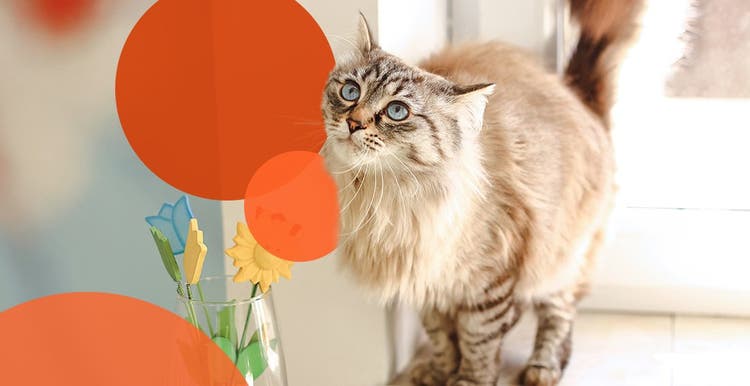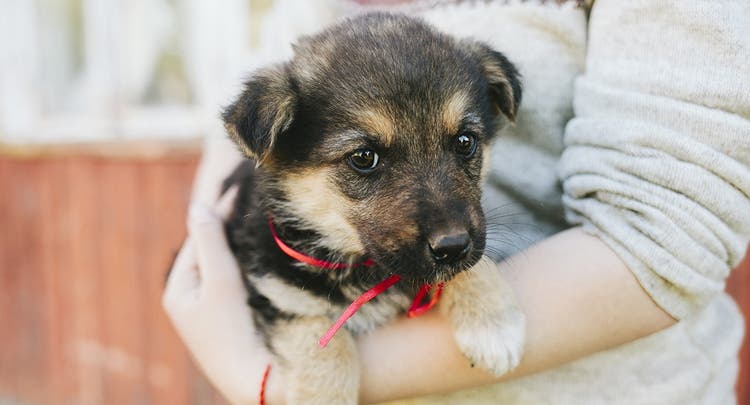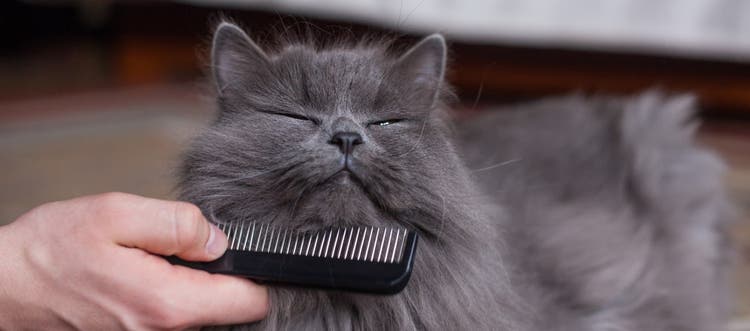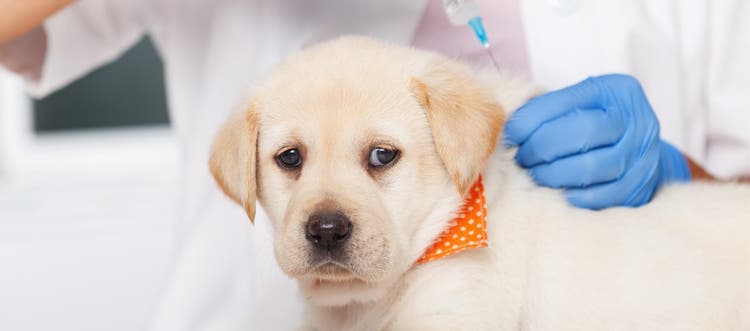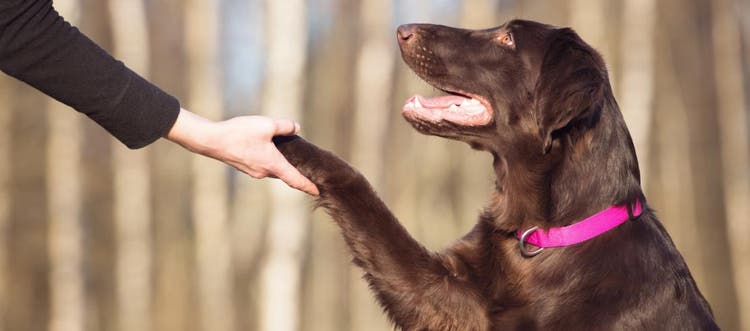Get our guide to kitten feeding.
Kittens have special nutritional needs to support healthy growth, and they require more calories and energy than adult cats. Younger kittens also need to be fed more frequently due to their tiny stomachs.
Given these special needs, it's important to make sure your kitten is getting the right type and amount of food at every stage of growth.
When Do Kittens Stop Nursing?
After they're born, young kittens should be nursed or bottle-fed. When kittens are about 8 to 10 weeks old, their baby teeth start to come in and they should be fully weaned to begin eating wet or dry food.
How Much Should You Feed a Kitten?
The amount of food your kitten needs depends on their age and size, as well as how calorie-dense the food is. Feed your kitten according to the feeding guide on the kitten food packaging. Consult your veterinarian for a specific feeding plan for your kitten if you are unsure.
The graphic above illustrates how the amount of food a growing kitten needs increases as they reach adulthood. Always check the label of your kitten's food for specific feeding requirements.
What Should You Feed a Kitten?
Whether you feed wet or dry food, it should be formulated specifically for kittens. Kitten food is designed to meet the nutritional needs of a growing kitten, while cat food is designed for adult maintenance. Kitten food has higher amounts of protein, fat, vitamins and minerals than adult cat food to help a developing kitten, and dry kitten food often has smaller pieces of kibble for a kitten's small mouth.
How Often Should You Feed a Kitten?
Because kittens have small stomachs and need a steady supply of nutrients, free-feeding - having kitten food available all day so they can eat whenever they're hungry - is recommended until they're about 5 months old. Then, feed them three or four small portions a day until your kitten is 6 months old, eventually reducing feedings to twice daily.
How Do You Know If a Kitten Is Getting Enough Food?
Kittens grow at different rates, but yours should be growing noticeably and steadily, especially in the first 4 to 7 months of life. Healthy kittens have clear eyes, shiny coats and lots of energy.
If your kitten is lethargic or has a dull coat or eyes, it's a sign they're not getting the necessary nutrients. This could mean they need different food, or even that the kitten may have picked up intestinal worms. Consult your veterinarian to discuss changing your kitten's diet or deworming your pet.
Can You Give a Kitten Treats?
Giving your kitten cat treats as positive reinforcement can help with training your new pet - and developing your bond. Just don't feed your kitten treats excessively; treats should be 10% or less of your cat's daily caloric intake.
It's best to stick with specially formulated cat treats rather than table scraps. Never give your kitten raw eggs, meat or fish, as these could contain harmful bacteria. Onions, garlic, chocolate, coffee, tea, raisins and grapes can also be toxic to cats.
When to Switch from Kitten to Cat Food
Kittens are usually full-grown at 10 months old and can start transitioning to adult cat food around this time. As with any food transition, gradually switch to avoid stomach upset. To start, replace 10% of your cat's kitten food with adult food, and then increase the percentage of adult food every few days until your cat has fully transitioned to the adult formula.
Facts about Kittens and Food
- Growing kittens require more calories and nutrients than adult cats
- Kittens should be fed more frequently than adult cats, starting with free-feeding and transitioning to three to four times a day
- Kittens are typically full-grown at 10 months, or 40 weeks, old
- Look for DHA on the kitten food label. This omega-3 fatty acid promotes brain, eye and nervous system development

